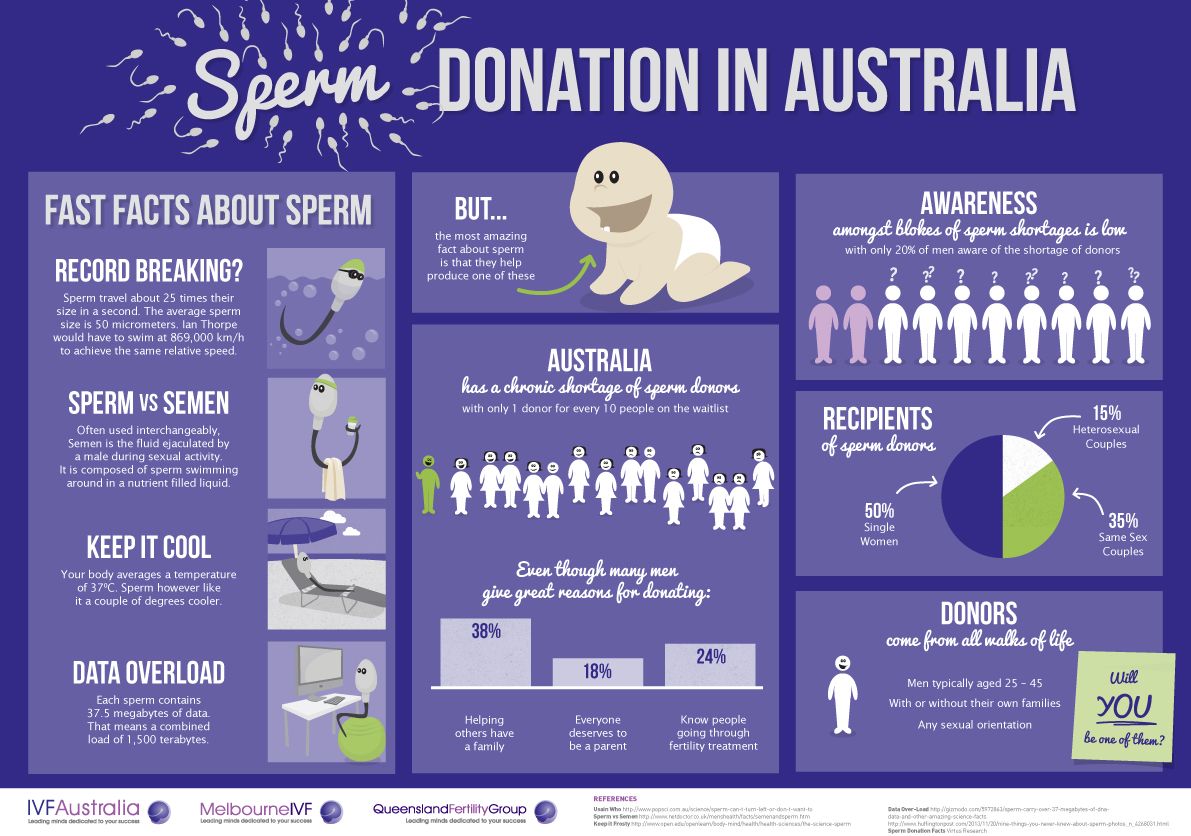The leading fertility clinics in the Virtus Health group, including IVF Australia, Melbourne IVF and Queensland Fertility Group, have joined forces to research sperm donation in Australia.
What did we find out about Sperm Donation?
Only 20% of men are aware that there is a shortage of sperm donors in this country.
While the majority of Australians are aware of the need for blood and organ donation, the requirement for sperm donors is largely unknown.
Who uses sperm donation?
Used by patients as either part of an In-Vitro Fertilisation (IVF) cycle, or via Intrauterine Insemination (IUI), donor sperm can help overcome male factor infertility (15%), or help same-sex couples (35%) and single women (50%) have a child.
What are the common motivations for donation?
The same research also discovered that the common reasons for wanting to donate sperm included:
- Helping others to have a family (38%)
- Knowing other people going through fertility treatment (24%)
- Knowing my sperm count and quality could be assessed at donation (20%)
- Everyone deserves to be a parent if they want to be (18%)
Sperm donors in Australia can be known to the recipient or recruited via the clinic. Many couples and individuals choose their sperm donor through a clinic, as knowing the demographic profile of the donor but not their identity is a preferred option. In these cases, children of sperm donors are able to access their biological father’s details when they are 18 years old.
The reason for this is that in the past, many donor conceived individuals have reported extreme distress about the absence or lack of information about their biological parents. Nowadays, the exchange of this information, once the child has turned 18 years of age, is considered to be an important part of the use of donated sperm.
While Australians cannot be paid for their sperm, most clinics reimburse donors for legitimate expenses. Sperm donors in Australia are typically aged 25-45, with or without their own families, and of any sexual orientation.
De-identified donor sperm can be used to create up to five or 10 families, depending on what state they’re in, please check with your local state for family limits. Unlike popular belief from movies such as Vince Vaughn’s ‘Delivery Man’. Donors need not worry – fathering 500+ children from their sperm donation is a scenario only Hollywood can create.
Would you or someone you know now consider sperm donation?
After seeing the results of this research, we want to raise awareness of the need for more sperm donors in Australia. If it is something that you would consider talk to your local clinic for more information.
Sperm Donation in Australia Infographic



